Content
Entered keyword "trust/social cohesion" yielded 79 results.
Typ obsahu:
Publikace
Authors: Sedláčková, Markéta, Jiří Šafr
According the theory of civil society generalized social trust is enhanced in all sorts of civic activism; according the alternative hypothesis rather non-institutionalized participation based on collective action should be link to interpersonal trust. We assess the structure of...
Publikace
Authors: Hrbková, Lenka, Kudrnáč, Aleš
As the COVID-19 pandemic became an unprecedented global threat, it was accompanied by an increase in trust in governments as well as fear among the public. Previous research suggests that both institutional trust and fear contribute to the willingness of citizens to comply with a...
Publikace
Authors: Vlachová, Klára (ed.)
Czech Social Attitudes in the European Context: In the Heart of Europe reflects the political, welfare, and general social attitudes in the Czech Republic, which has 30 years of existence, in European comparison. In nine chapters, the team of contributors address understandi...
Publikace
Authors: Vlachová, Klára (ed.)
In the years 2002 to 2012, Czech society experienced a series of events and changes. Similar events and changes, however, also took place in other European countries. State and development of attitudes, values and behaviour of populations of European countries in connection with...
Publikace
Authors: Sedláčková, Markéta
The book analyses theoretically as well as empirically the role of different types of trust in democratization in post-communist Europe after the fall of Soviet bloc. The volume represents a multidisciplinary approach: psychology, sociology, political science, history and economi...
Publikace
Authors: Vlachová, Klára
This article deals with legitimacy of democracy and its relationship to trust in institutions in the Czech Republic. The author distinguishes between support for democracy as a form of government, and satisfaction with the development of democracy in a (particular) country, and s...
Publikace
Authors: Tabery, P., Pilnáček, M.
Trust is considered an essential part of a democratic society. That is why it is important to pay attention to it, especially in times of crisis. Some recent studies have introduced a new approach to examining attitudes and trust using social network analysis. The aim of our stud...
Publikace
Authors: Sedláčková, Markéta, Šafr, Jiří
This paper investigates the role of civic culture and other political factors in support for democracy in the Czech Republic during the decade following EU accession. The goal is to assess the validity of civic virtue theory and to compare the impact of these factors on affective...
Publikace
Authors: Sedláčková, M., J. Šafr
On the basis of the discussion between cultural and institutional theories, and taking into account the specific development in post-communist countries, we study three elements of the democratic system - specifically, social trust, institutional trust, and systemic trust (legiti...
Publikace
Authors: Čermák, D., R. Mikešová, J. Stachová
Publikace
Authors: Paulína Tabery, Matouš Pilnáček
Trust is considered an essential part of a democratic society. That is why it is important to pay attention to it, especially in times of crisis. Some recent studies have introduced a new approach to examining attitudes and trust using social network analysis. The aim of our stud...
Publikace
Authors: D. Čermák, R. Mikešová, J. Stachová
This article deals with the factors influencing the degree of trust in political institutions at three levels of government in the Czech Republic (national, regional and local) in two dissimilar regions in the time of economic crisis in 2009, the year when citizens of the Czech R...
Publikace
Authors: Vajdová, Zdenka (ed.)
A role of social capital and of its individual dimensions working at overcoming the impacts of economic crises is analysed. Study focuses on a detailed analysis of the inhabitants of the Kraj Vysočina with a supposed high level of social capital, and of Ustecky kraj with a suppos...
Publikace
Authors: Šimon, Martin, Jíchová, Jana
This article reports on a new empirical study evaluating crime concentration at places in a postsocialist city. We use principles of the law of crime concentration at places and the Cambridge Crime Harm Index to measure crime count and crime harm concentration at the le...
Publikace
Authors: Šimon, Martin, Křížková, Ivana, Klsák, Adam
Immigrants in large Czech cities 2008–2015: the analysis of changing residential patterns using population grid data – This article contributes to the discussion of the segregation of immigrants by presenting evidence from a new destination country of international migr...
Publikace
Authors: Tuček, Milan (ed.)
The monograph discusses following social cohesion issues in the Czech society: social inequalities, social tension, social justice, trust and legitimacy, cohesion in spatial dimension, and influence of bridging social capital on social cohesion. Though the widely held agreement e...
Publikace
Authors: Šimon, Martin
Phantom Borders: less know data sources for understanding elections. The aim of this article is to report about phantom borders as a unique type of border. Current research in political geography and history shows that even no longer existing legal and political borders can still...
Publikace
Authors: Anýžová, P., P. Matějů
Publikace
Authors: Tudzarovska Emilija
The book examines and investigates the legitimacy of the European Union by acknowledging the importance of variations across actors, institutions, audiences and context. The book chapter examines the role of the national parliaments and party politics in exercising the legitimiza...
Publikace
Authors: Bischof, S., Decker, A.
Rural governance increasingly involves a broad range of political agents – but whom do rural dwellers consider responsible for creating and maintaining local opportunity structures? Focusing on the issue of places to socialise, our paper investigates resident-municipality relatio...





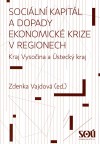
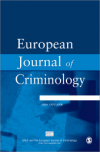

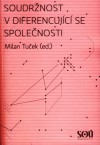

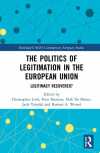
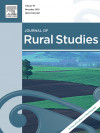
Newsletter
Facebook
X
Tweets by SociologickyNewsletter